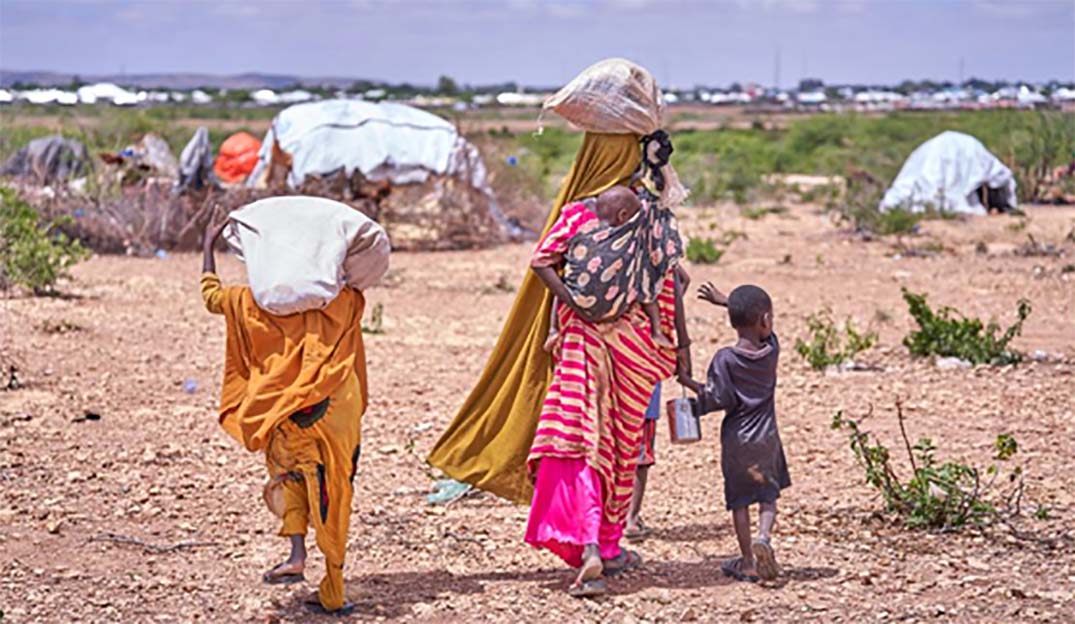The International Organisation for Migration (IOM) and Microsoft have teamed up to address climate-induced displacement by harnessing artificial intelligence (AI) and data insights.
Through innovative pilot projects with Microsoft’s AI for Good Lab in the Maldives, Ethiopia, and Libya, the collaboration aims to mitigate the impacts of climate change on migration and enhance resilience among vulnerable communities.
Climate change is a growing driver of displacement, with 26,4-million internal displacements recorded in 2023 alone. By the end of the year, 7,7-million people were left internally displaced due to disasters (IDMC, 2024).
The scale of displacements triggered by weather-related events underscores the urgent need for more data highlighting the impacts of climate change on migration.
“We can no longer simply react to climate change,” says Amy Pope, IOM director-general. “This collaboration with Microsoft empowers IOM with data and insights that enable us to proactively address the impact of climate change on migration so we can better protect vulnerable communities.”
In response to this growing crisis, IOM and Microsoft have combined advanced AI tools, local expertise, and data-driven insights to support communities impacted by climate-related risks and strengthen their resilience to future challenges.
“Our collaboration with IOM demonstrates how AI helps address the urgent challenges posed by climate-driven displacement,” says Dr Juan Lavista Ferres, chief data scientist and director of Microsoft’s AI for Good Lab. “These projects show how local teams on the ground can unlock insights with AI to anticipate risks and respond with solutions that improve the resilience of communities.”
In Ethiopia, data analysis revealed that 700 000 people and 1,5% of the country’s croplands are at risk of flooding. This information enables IOM to plan more effective interventions, supporting displaced populations and reducing the likelihood of future displacement.
In Libya, research focused on the impact of extreme heat on migration pathways. Under a global warming scenario of 2°C, up to 72% of the country’s migration routes could experience dangerous heat levels, significantly increasing health risks for migrants.
Meanwhile, in the Maldives, projections indicate that by 2050, approximately 9 000 people could be displaced by rising sea levels. Some islands may see over 70% of their populations at risk, while the analysis identified five islands that are likely to remain safe. These findings are essential for guiding migration and adaptation policies in collaboration with the Maldivian government.
IOM and Microsoft will showcase the outcomes of the partnership through the Climate Action Portal, a platform that will offer key insights on climate change and migration. The portal will present pilot results through interactive maps and dynamic data visualizations to empower policymakers and humanitarians with actionable insights.
This collaboration is part of a strategic partnership between IOM and Microsoft Philanthropies to leverage technology and data to save lives, drive solutions, and facilitate pathways and sustainable impact for migrants.
By combining the power of AI with local expertise, IOM and Microsoft are setting a new standard for identifying vulnerable populations, predicting displacement hotspots, and equipping decision-makers and humanitarian actors with the tools needed to mitigate risks and support at-risk communities.
Featured picture: A Somali mother and her children displaced by flooding search for a place to take shelter among other families who have already found refuge on higher ground. Photo credit: IOM/ Ismail Abdihakim Ismail

